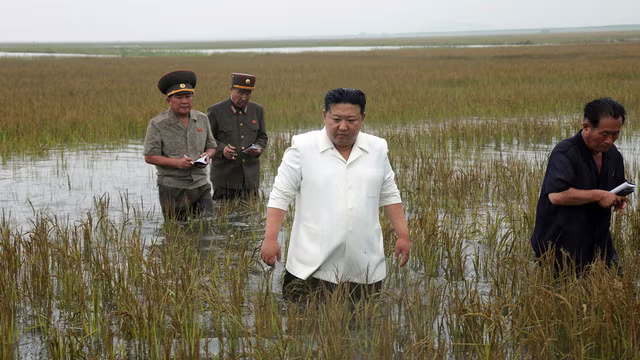radicalthought.org – North Korea’s approach to managing natural disasters has long been a subject of scrutiny, reflecting the regime’s priorities and the challenges it faces in maintaining stability and control. Recent events, particularly the response to devastating floods, have once again brought the country’s disaster management strategies into the spotlight.
Mobilization of Military and Strict Punishments
In response to severe flooding, North Korea has mobilized its military to assist in rescue and recovery efforts. This strategy, while effective in providing immediate aid, highlights the regime’s reliance on military resources for civilian tasks, a common practice in the country.
However, the response has not been without controversy. Reports suggest that North Korean leader Kim Jong-un has executed several officials for their perceived failures in managing the disaster. This harsh measure underscores the regime’s approach to accountability, which often involves severe punishment for those deemed responsible for failures.
Lack of Infrastructure Investment
Despite the recent efforts, North Korea’s history of inadequate disaster preparedness and infrastructure investment remains a significant issue. The country has repeatedly failed to invest in infrastructure that could mitigate the impact of natural disasters, leading to increased vulnerability and damage.
The adoption of a disaster management strategy in 2019, developed in collaboration with an EU NGO, represents a step towards better preparedness. However, the effectiveness of this strategy in practice remains to be seen, especially given the recent execution of officials.
Political and Economic Implications
Kim Jong-un’s response to the floods also serves as a political tool, allowing him to assert control and demonstrate his leadership in a crisis. By taking a hard stance against those he perceives as responsible for the disaster, he reinforces his authority and maintains a strong grip on the population.
Economically, the disaster has compounded existing challenges, particularly in agriculture, which is crucial for the country’s food security. The government’s decision not to seek outside help in recovering from the floods further isolates the country and exacerbates its economic difficulties.
Conclusion
North Korea’s response to natural disasters is a complex interplay of political, economic, and humanitarian factors. While the regime has shown some capacity to mobilize resources and respond to crises, its failure to invest in long-term disaster preparedness and its use of severe punishments for perceived failures highlight significant challenges.
As North Korea continues to navigate these challenges, the international community watches closely, assessing the regime’s ability to manage crises and the implications for its people and the region.
